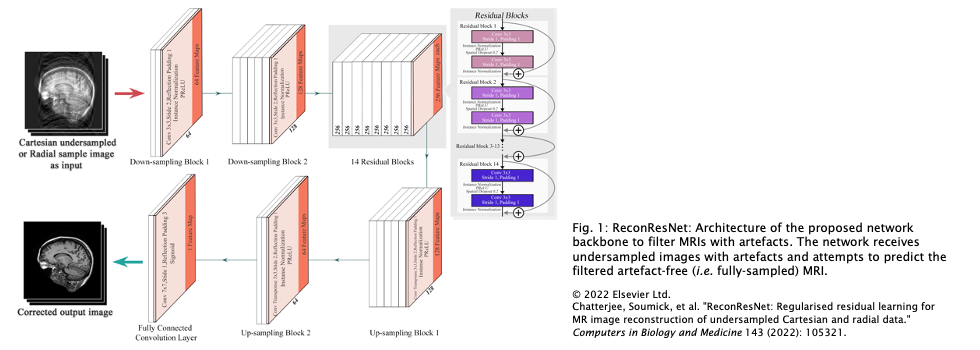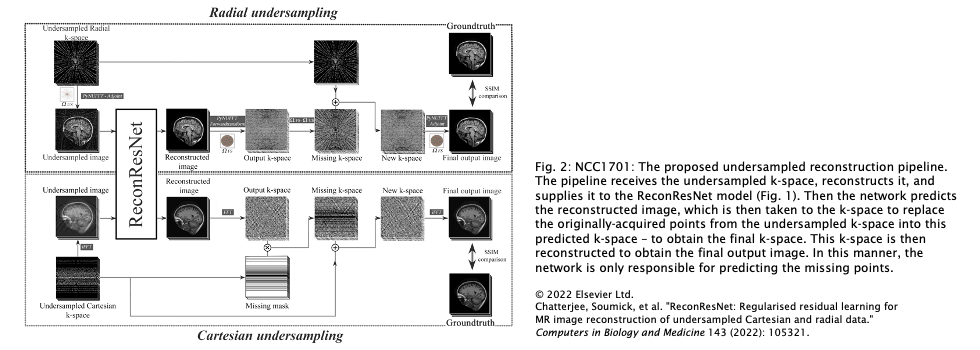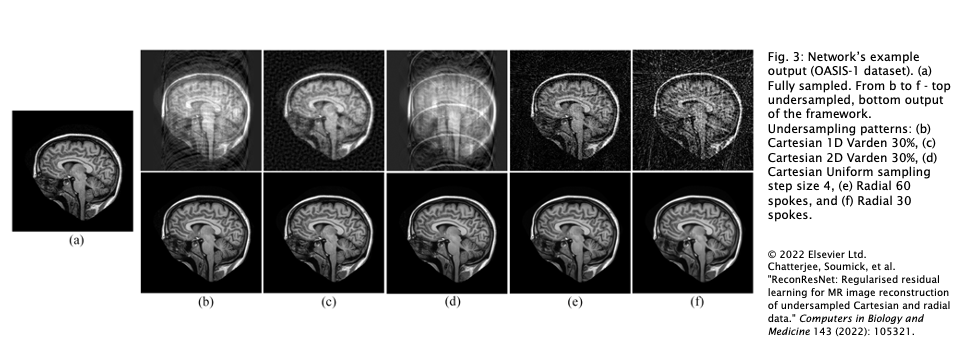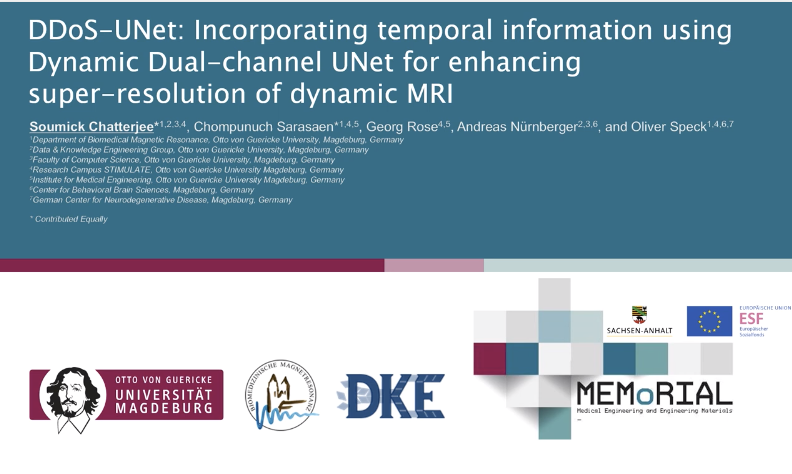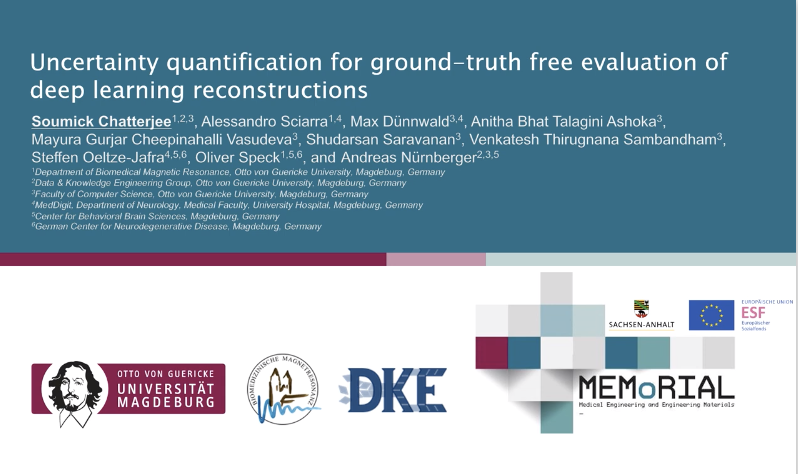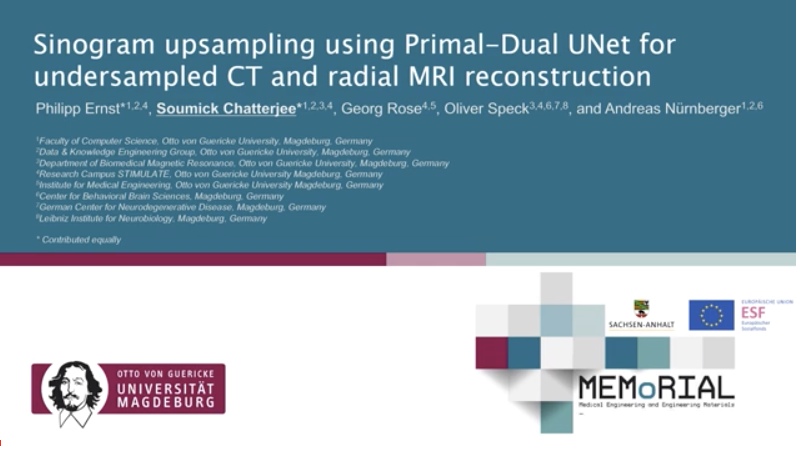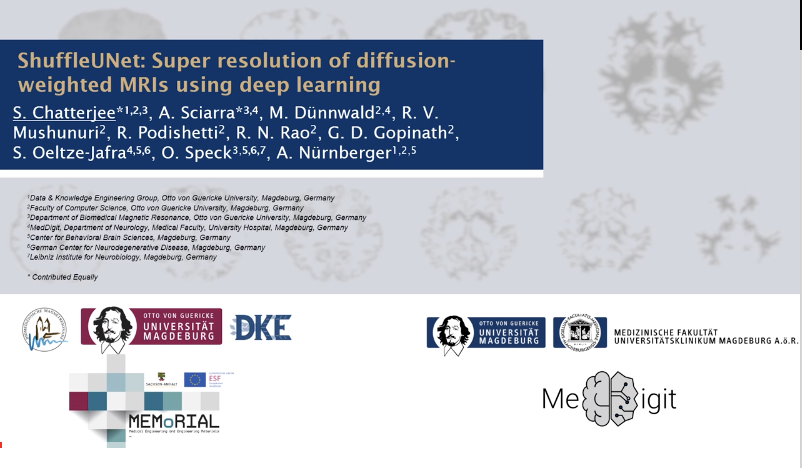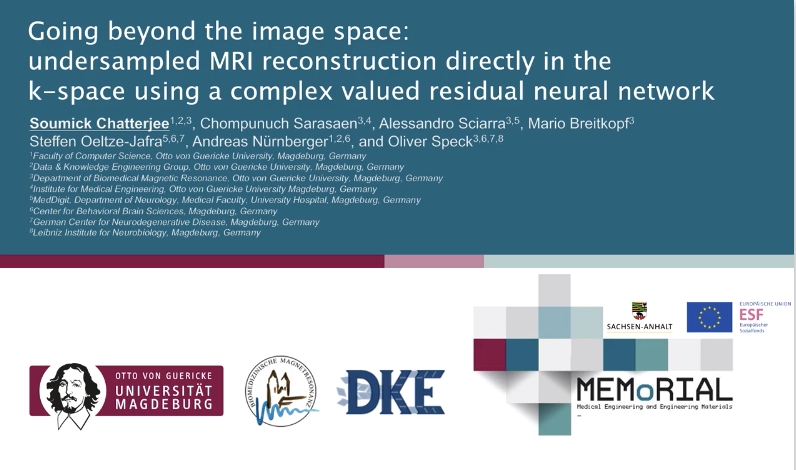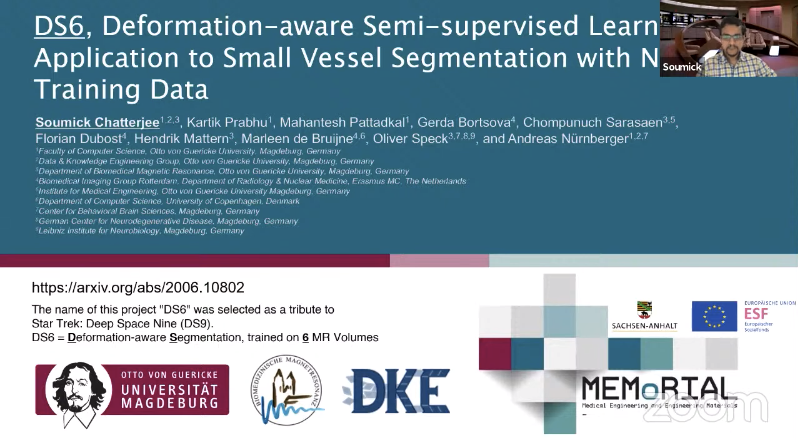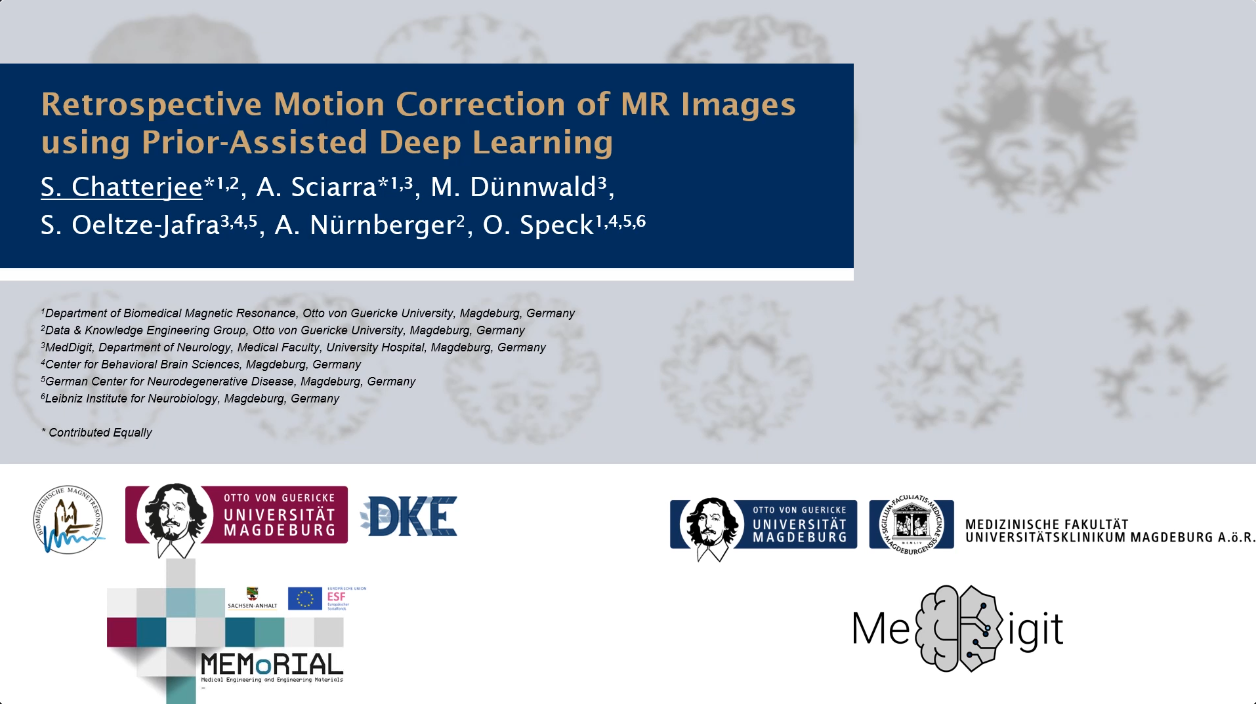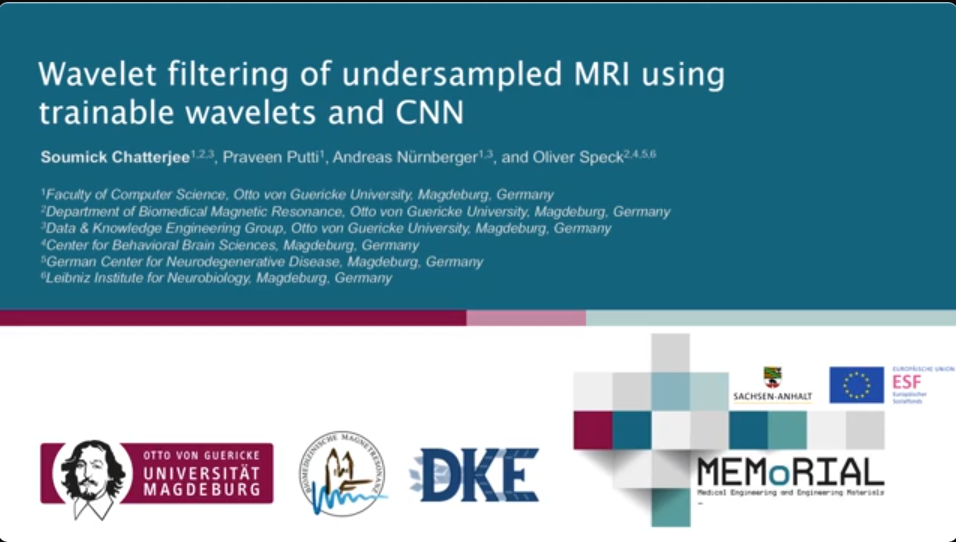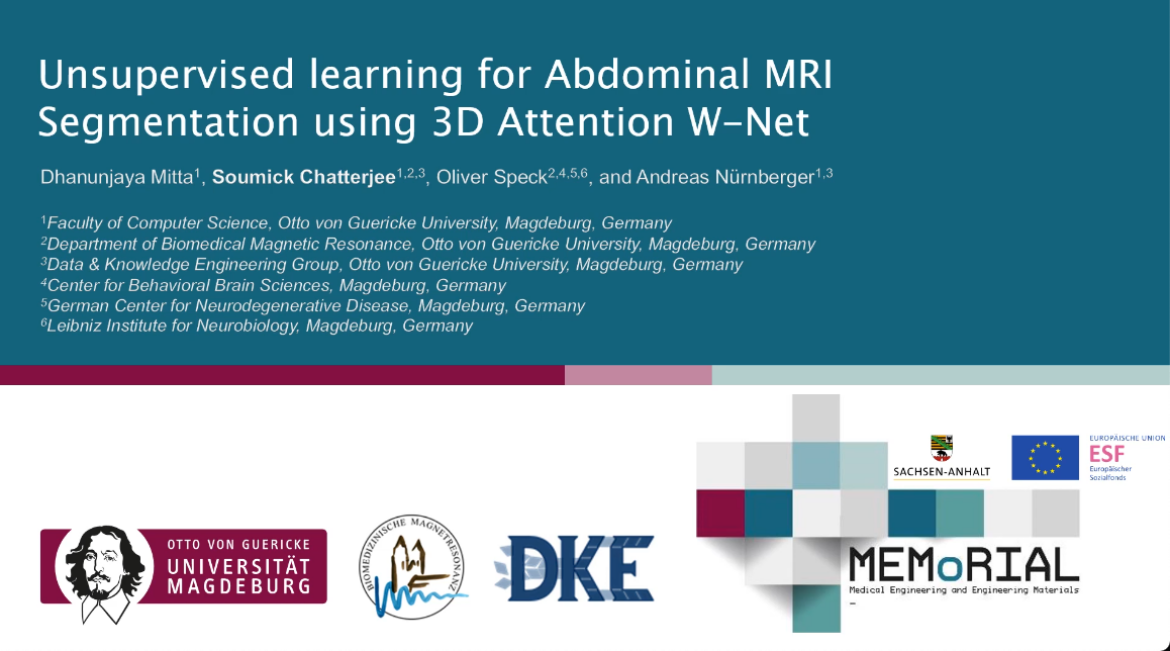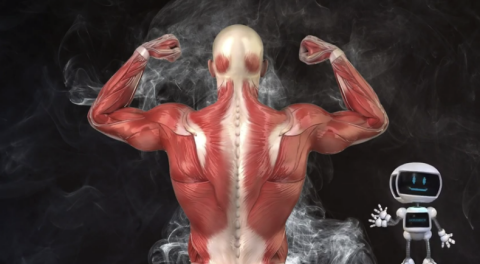Model-based reconstruction methods for CT perfusion imaging
...
M1.4 | Use of prior knowledge for interventional MRI
Funding period: Jan 2018 to Jun 2022
Researcher: Soumick Chatterjee
Wrap-up
Keywords: Undersampled MRI reconstruction, radial MRI reconstruction, deep learning, complex-valued convolutions, prior knowledge
Background:
Magnetic resonance imaging (MRI) can provide high spatial resolution for detecting minute pathological changes in tissues. However, MRi is an inherently slow process due to consecutive data acquisition, which leads to a long scan time for high-resolution imaging, The acquisition speed can be increased by acquiring less data (undersampling). Consequently, this leads to the degradation of image quality, such as loss of resolution or introduction of image artefacts.
Objective:
Development of deep learning based techniques for dealing with the problem of undersampled MRIs, which are capable of real-time execution
Methods:
Two different methods have been developed for artefact reduction in the image space - NCC1701 (including ReconResNet model) and PD-UNet, one method has been developed for the super-resolution of undersampled static MRIs - ShuffleUNet, two methods have been developed for super-resolution of undersampled dynamic MRIs - Fine-tuning with prior knowledge and DDoS-UNet, KSPReconResNet has been developed for the reconstruction in the k-space, and finally Fourier-PD and Fourier-PDUNet models for reconstruction in the hybrid space (image and k-space).
Results:
The developed methods have improved the performance of the compared to the state-of-the-art methods. For the task of undersampled MRI reconstruction, the hybrid space models performed better than pure image space model. Incorporation of prior knowledge improved the performance of the models.
Conclusions:
This thesis studied various deep learning techniques for the tasks of undersampled MRI reconstruction and retrospective motion correction. This thesis proposed two different methods for artefact reduction in the image space of undersampled MRIs, while proposing another method aimed at the reconstruction of undersampled radial MRIs, which unifies the problem of sparse CT and undersampled radial MRIs. Furthermore, the problem of undersampled MRI reconstruction has been dealt with as a Super-Resolution problem, and three different methods have been proposed - one of which attempts to learn both spatial and temporal relationships to perform undersampled dynamic MRIs. Eventually, the problem of undersampled reconstruction was addressed directly at k-space and hybrid space (mix of image and k-space). Afterwards, this thesis proposed five different automatic deep learning based MRI processing pipelines and evaluated them while working with undersampled and reconstructed data. Finally, the models proposed for undersampled reconstruction (ReconResNet, Fourier-PD, Fourier-PDUNet) were employed for the task of retrospective motion correction.
Originality:
Development of deep learning architectures - ReconResNet, PO-UNet, KSPReconResNet, ShuffleUNet, Fourier-PD, Fourier-PDUNet; development of processing pipelines for undersampled reconstruction - NCC1701 and DDoS-UNet;
